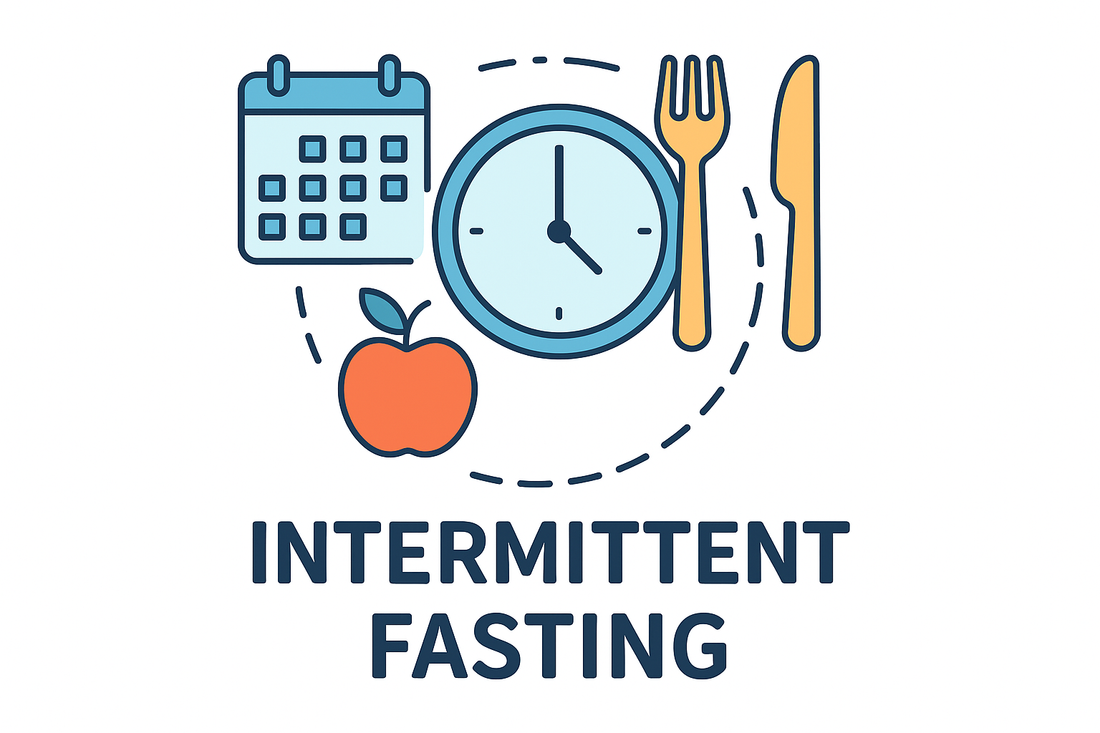
Intermittent Fasting: Benefits, Risks and the Role of Electrolyte Supplements
Share
In recent years, intermittent fasting (IF) has gone from a niche health trend to a mainstream wellness strategy, embraced by athletes, entrepreneurs, and everyday health-conscious individuals. But what does science really say about it? Let’s explore the evidence-based benefits and risks of intermittent fasting—and why electrolyte supplements can play a crucial role in making your fasting journey safer and more effective.
🔬 What Is Intermittent Fasting?
Intermittent fasting is an eating pattern that cycles between periods of eating and fasting. Popular methods include:
16:8 – 16 hours fasting, 8-hour eating window
5:2 – 2 days per week of very low-calorie intake
OMAD – One meal a day
It’s not about what you eat, but when.
✅ Science-Backed Benefits of Intermittent Fasting
1. Improved Metabolic Health
Studies show IF can reduce insulin resistance and lower blood sugar levels (Patterson et al., 2015), potentially reducing the risk of type 2 diabetes.
2. Fat Loss and Weight Control
Fasting can naturally reduce calorie intake and increase fat oxidation. A 2020 meta-analysis found intermittent fasting to be effective for weight loss and fat reduction (Harris et al., 2020).
3. Cellular Repair and Autophagy
Fasting triggers autophagy, a process where your body cleans out damaged cells and regenerates new ones (Mizushima et al., 2008)—potentially reducing the risk of chronic diseases and even promoting longevity.
4. Heart Health
Evidence suggests that IF may improve blood pressure, cholesterol levels, and triglycerides—key markers for cardiovascular disease (Tinsley & La Bounty, 2015).
5. Brain Function
Fasting may enhance cognitive performance and reduce inflammation, in part by boosting brain-derived neurotrophic factor (BDNF), a key molecule involved in brain plasticity (Mattson et al., 2017).
⚠️ Risks and Side Effects of Intermittent Fasting
While IF offers benefits, it's not for everyone. Potential downsides include:
-
Dehydration and electrolyte imbalance
-
Fatigue or brain fog, especially in the early stages
-
Disordered eating patterns in vulnerable individuals
-
Hormonal disruption in some women, especially when calorie intake is too low
-
Nutrient deficiencies if meals aren't well-planned
It’s always recommended to consult with a healthcare professional before beginning an IF regimen, especially if you have existing medical conditions.
💧 Why Electrolyte Supplements Matter During Fasting
When you’re fasting, especially for long windows, your insulin levels drop—which prompts your kidneys to excrete more sodium and water. This leads to electrolyte loss, particularly sodium, potassium, and magnesium.
Key Benefits of Electrolyte Supplementation While Fasting:
-
Reduces fatigue and headaches caused by sodium or magnesium depletion
-
Supports muscle and nerve function, especially during workouts
-
Prevents cramps, brain fog, and low energy levels
-
Improves hydration, even when not drinking sugary beverages
Look for sugar-free electrolyte supplements that contain a balanced blend of sodium, potassium, magnesium, and B vitamins
🧠 Final Thoughts
Intermittent fasting offers a compelling mix of health benefits backed by science, from improved metabolism and heart health to cognitive enhancement. But it’s not without risks—especially dehydration and mineral loss.
Incorporating electrolyte supplements into your fasting routine is a simple but powerful way to stay hydrated, energized, and focused—especially during extended fasts or high activity days.
Disclaimer: Always speak with a healthcare provider before starting intermittent fasting or introducing new supplements to your routine
